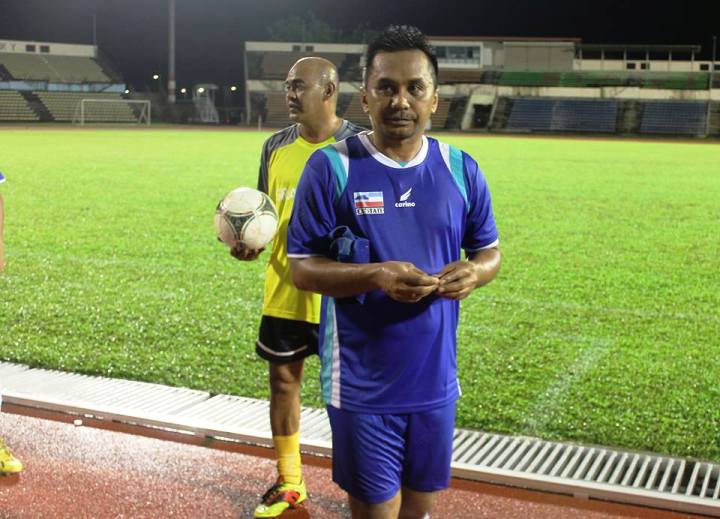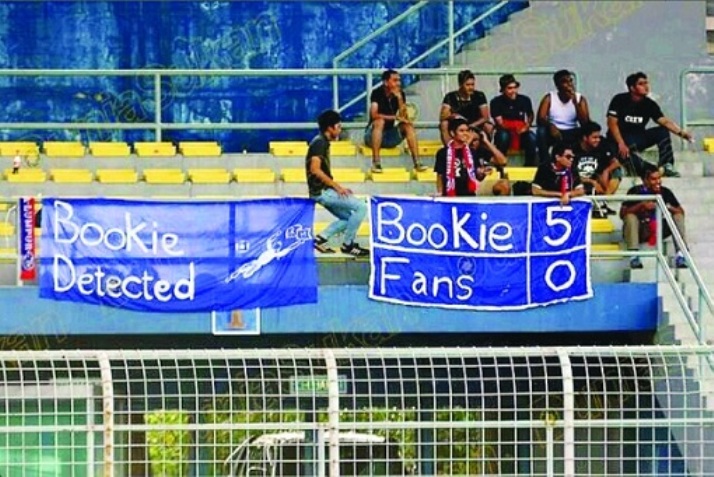
By Suresh Nair
IT instantly reminded me of Singapore’s “Yellow Ribbon Project” when I heard that the Football Association of Malaysia (FAM) lifted the ban on the 84 players caught for match fixing 22 years ago.
FAM deputy-president Datuk Seri Affandy Hamzah said the players are now free to participate in all football-related activities at state and national levels.
“Of the six players who are serving life bans, we will appeal to the AFC (Asian Football Confederation) and FIFA (world football’s governing body) to lift their sentences,” said Affandy after chairing the FAM executive committee meeting at the Wisma FAM in Kelana Jaya on Monday.
Malaysian and Singaporean football were tainted by match fixing in the 1993-1994 season and it resulted in police picking up more than 100 players. Some of the offenders were banished under the Restricted Residence Act while others were suspended from playing.
Singapore, too, fiercely threw the book at players, including a top-ranked FIFA referee, and instantly sent them behind bars in one of the toughest match-fixing sentences in the world, which at that time, rightly whacked the strongest message of absolute non-tolerance to match-fixers.
MATCH FIXING
As a journalist covering the football scene for more than three decades, I know that one of the factors in Singapore’s withdrawal from the Malaysia Cup in the mid-1980s and early 1990s was the fiery issue of match-fixing. Various Malaysian states alleged, rather unfairly in my opinion, that Singapore was the source of much of the match-fixing and bribery attempts that were plaguing the competition.
Following corruption charges against a famous player and a top-ranked referee in Singapore in August 1994, Malaysian police conducted match-fixing investigations into each of the 14 Malaysian teams in the competition. Eventually, 64 players were banned from football for various periods while another 21 were sentenced to internal exile and banned.
But after 30 years, the FA of Singapore appears to be less forgiving to the errant players and/or officials who were slapped with similar long-term bans.
While the government, through “Yellow Ribbon Project” gives the thumbs-up, the FAS looks like doing the reverse as I know a number of players and officials have unsuccessfully appealed to get back on the football pitch.
Salute to the “Yellow Ribbon Project”, which is a national initiative aimed at encouraging the community, through various programmes and activities, to accept ex-offenders released from prisons and drug rehabilitation centres and to support their reintegration into society. It was launched in 2004 by the Community Action for the Rehabilitation of Ex-Offenders (CARE) Network, which is made up of organisations that play a major role in the rehabilitation of ex-offenders.
FORGIVE AND FORGET
Those who’ve been behind bars cannot be totally condemned, in my view. The acceptance and support of the people around them, they would be less likely to return to their old ways.
The name of the forgive-and-forget initiative was inspired by a 1970s hit song, “Tie a Yellow Ribbon Round the Ole Oak Tree”. The song was about a man who had just been released from prison and was hoping to reunite with his wife. In a letter written before his release, he had told her that if she was willing to take him back, she could let him know by tying a yellow ribbon around the only oak tree in the city square. When he arrived at the area, he saw not one but hundreds of yellow ribbons on the tree. The yellow ribbon was thus chosen as the project’s symbol of forgiveness and acceptance.
Indeed, the Yellow Ribbon Project has three objectives: Create awareness of the need to give ex-offenders a chance to start afresh; Generate acceptance of ex-offenders and their families into the community; Inspire community action to support the rehabilitation and reintegration of ex-offenders.
Like what Malaysia magnanimously did, the FAS must follow likewise and give the errant footballers another chance, if they sincerely appeal and want to turn over a new leaf.
I love the colour “yellow” and I hope with a sympathetic ribbon in hand, the FA of Singapore should inspire community action to support the rehabilitation and reintegration of errant players and officials back into football society.
- Suresh Nair is a Singapore-based journalist, who worked closely with many players and officials, who were caught red-handed for match-fixing since the mid-1980s.



































